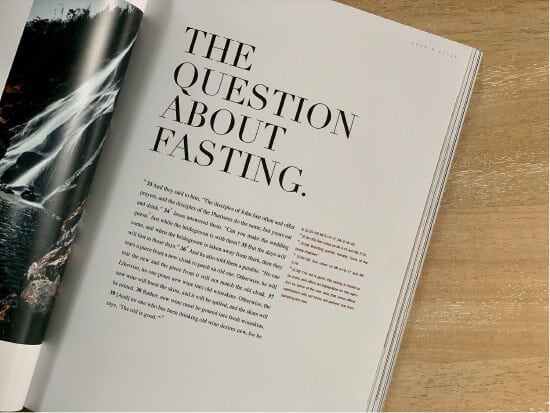Intermittent fasting is having a moment in the spotlight.
Many people, including famous celebrities, swear by intermittent fasting, saying it helps them manage their weight and increase their energy.
But is intermittent fasting all that its fans say it is? Can it really prevent disease and provide anti-aging benefits? What are its benefits and potential risks for women?
In this article, we’ll learn all about intermittent fasting and what it can mean for your health and hormones.

What is Intermittent Fasting?
Intermittent fasting is an umbrella term for a variety of eating methods. All of them have one thing in common: a cycle of eating for a period of time and fasting in others. Fasting doesn’t mean abstaining from all food and drinks. Fluids like water, tea, and other low- or no-calorie drinks are allowed (and encouraged) while fasting.
A few popular intermittent fasting plans include:
- 16/8: This time-restricted form of fasting involves consuming foods during an 8-hour window and fasting for the other 16. For example, you may choose to eat between 9 AM to 5 PM and abstain from food until 9 AM the following day. While advocates of this plan encourage healthful eating, it doesn’t specify a list of foods to eat and avoid.
- 14/10: Similar to the 16/8 method, you would fast for 14 hours and feast during a 10-hour window on this plan.
- 18/6: In this method, you eat normally for 6 hours and fast for 18 hours.
- 12/12: Followers of this approach adhere to a 12-hour fasting period every day.
- 5/2: This intermittent fasting involves eating regularly for 5 days and severely limiting your calories for 2 days of the week. You may choose any 2 days of the week to fast, as long as you include at least one feasting day between them. During the 2 fasting days, followers are restricted to only 500 (women) or 600 calories (men) each day.
- Alternate-day fasting: As its name suggests, this approach of intermittent fasting involves fasting for 24 hours every other day. While some people prefer to completely avoid eating solid foods on their fasting days, others eat up to 500 calories.
- Weekly 24-hour fast: This approach is simple – you fast for 24 straight hours once a week.
- Meal skipping: Beginners to intermittent fasting may find meal skipping the easiest to do. It involves being more mindful, eating only when your body is sending hunger signals.
- The Warrior Diet: This strict intermittent fasting method alternates between 20 hours of undereating during the day followed by 4 hours of overeating at night.
Each approach has its supporters and detractors. That said, there’s no perfect intermittent fasting approach. You may need to experiment with the various methods to find the one that feels right for you and your body.
As always, I highly recommend consulting your primary physician to determine if intermittent fasting is right for you.
Four Science-Backed Benefits of Intermittent Fasting
Search “intermittent fasting” on social media and you may come across stories touting the almost miraculous benefits of the eating method.
But which of these are backed by scientific evidence? If you’re wondering whether intermittent fasting is right for you, here are a few of the most well-known benefits.
1. Weight Loss and Metabolic Health Improvements
Many people who start intermittent fasting do it to lose weight and/or to improve their metabolic health. “Metabolic health” is a term that refers to having a low risk of developing illnesses like heart disease, stroke, type 2 diabetes, etc.
Naturally, eating fewer meals and severely restricting the amount of calories you consume means your body can’t maintain its current weight. This is why many diets that rely on limiting caloric intake are effective for helping you lose weight.
Research shows intermittent fasting is an effective tool for weight loss and metabolic health.1,2,3,4 A 2021 review also found that intermittent fasting can:5
- Decrease blood pressure
- Improve insulin resistance
- Decrease oxidative stress
- Lower low-density lipoprotein (LDL) cholesterol (also known as “bad” cholesterol)
- Reduce triglyceride levels (a type of fat in your blood)
- Improve appetite control
- Enhance the diversity of your microbiome
Intermittent fasting also may help boost the function of hormones that influence weight loss.
- Norepinephrine: Fasting can lead to a rise in your norepinephrine levels.6,7 This stress hormone is mostly known for its involvement in your “fight or flight” response. But norepinephrine plays a role in fat burning. Because of this role, it is believed that the increase in norepinephrine is the main driver in the increased metabolic rate observed in short-term intermittent fasting.
- Glucagon: Like insulin, glucagon is a hormone secreted by your pancreas. But while insulin decreases your blood sugar levels, glucagon causes it to rise by telling your liver to convert fat into sugar. In other words, glucagon tells your body to start burning fat as its fuel.8
- Human growth hormone (HGH): Your HGH levels increase substantially during fasting.9,10 Among its many roles, HGH helps regulate carbohydrate and fat metabolism.11
2. Reduce Inflammation
The natural inflammatory processes in your body are essential for combating infections and soothing injuries. Once the inflammatory trigger gets resolved, everything should return to normal.
But sometimes your inflammatory processes begin when there’s no danger, and it doesn’t end when it should. Inflammation that goes on and on without resolution is called chronic inflammation.
As we learn more about chronic inflammation, one thing is clear: Chronic inflammation is the root cause of many diseases, such as heart disease, some cancers, and arthritis.
Some studies show intermittent fasting can help lower inflammation. A study published in 2019 showed that intermittent fasting reduced the production of monocytes, a type of pro-inflammatory cell. The investigators also found fasting reduced inflammatory activity of monocytes. These findings are significant since monocytes can cause serious tissue damage.12
Periods of fasting have also been shown to improve “leaky gut,” also known as intestinal hyperpermeability. In doing so, fasting can also help reduce systemic inflammation, which is typically elevated in individuals who are obese.13
3. Cognitive Health
Several animal studies show intermittent fasting may support brain health and prevent certain neurological degeneration.
Intermittent fasting has been shown to increase neurogenesis, or the formation of new brain cells.14 Fasting can also increase levels of the hormone brain-derived neurotrophic factor (BDNF).15 This key molecule is involved in the survival and growth of your brain cells. An increase in brain-derived neurotrophic factors may help boost brain health.
One trial examined the safety of alternate-day fasting on 59 obese subjects. At the end of the 8-week trial, participants reported less depression and eating disorders, indicating that intermittent fasting may have positive psychological effects.16
4. Cellular Renewal
When you fast, your cells undergo a process called autophagy. Think of autophagy as a housekeeping mechanism, like a waste removal process for your cells. It removes damaged or old cells to make room for new, healthy cells, and helps cells adapt to stress.17
Regulation of autophagy is seen as a target for many diseases, such as neurodegenerative conditions and certain cancers.18,19 And because autophagy decreases with age, some experts believe fasting may be a way to increase it.20
A 2010 study demonstrated that even short-term fasting can dramatically increase autophagy of brain cells.21
But as with most things, there are no definites when it comes to intermittent fasting. Much of your results may depend on factors like: your overall health, your gut health, the food you eat during your feasting periods, your physical activity, your stress level, and allowing calories to slip into your fasting window.
How is Intermittent Fasting Different for Women?
Simply put, women are wired differently. Because our hormones fluctuate on a monthly pattern, intermittent fasting can be trickier for us than it is for most men.
Some studies suggest short-term intermittent fasting may benefit women with polycystic ovarian syndrome (PCOS) by helping to manage weight gain and lower testosterone levels. A 6-week trial involving 18 women with PCOS showed that intermittent fasting reduced body fat testosterone levels while improving menstruation, insulin resistance, and chronic inflammation.22
But some experts have conflicting opinions on whether intermittent fasting is safe for women. Their concerns revolve around the potential negative effects it may have on estrogen levels and other reproductive hormones.
It’s important to note that these concerns largely stem from one study performed on rats. In this study, young rats were deprived of food for a full day every other day for 12 weeks. By the end of the experiment, the fasted female rats’ estradiol levels increased while levels of luteinizing hormone, which helps control the menstrual cycle, decreased compared to rats who had access to as much food as they wanted. The investigators also noted negative impacts on the rats’ menstrual cycle.23
Because estrogen is also involved in our mood, sleep patterns, heart and brain health, body fat, and so much more, disruptions to its levels could affect your overall health.
While the findings from the rat study do raise valid concerns, the female rats used in the study were very young (3 to 4 months old). In humans, this would equate to about 9 years of age.24 Since intermittent fasting should only be done by adults, the negative findings from the study may not be applicable to adult females.25
Outside of this trial, very few studies have examined how intermittent fasting affects reproductive hormones. The ones that have evaluated the potential effects had small sample sizes, which means the findings may not be significant enough to be applicable to the general population. Furthermore, published studies in women were limited to premenopausal women, which also severely limits the generalizability of their findings.26
Intermittent Fasting and Menopause
Many women find that their metabolism changes after menopause, often resulting in weight gain. Because intermittent fasting can help with weight loss, post-menopausal women may also see the same benefits.27
One study compared the effectiveness of alternate-day fasting among pre- and post-menopausal women. Both groups of women experienced similar decreases in weight, blood pressure, insulin resistance, and fat mass. LDL cholesterol was lower in post-menopasual women than in pre-menopausal women. The findings of this study suggest intermittent fasting may be effective in managing weight regardless of a woman’s menopausal status.28
Another study found similar results. In this 8-week study, both pre- and post-menopausal women showed similar weight loss and metabolic benefits of intermittent fasting.29
The bottom line is that intermittent fasting is a great tool for many women. It can benefit peri-menopausal and menopausal women as their estrogen levels drop, as well as pre-menopausal women with various metabolic concerns.
Now that we’ve covered the science behind intermittent fasting, let’s dive into the logistics.
Common Questions From Women About Intermittent Fasting
If you’re considering intermittent fasting, here are some common questions I receive from my patients.
What Can I Eat While Fasting?
Compared to many other diets, intermittent fasting places less focus on the foods one can eat. While there might not be a strict list of foods allowed, what you eat is still important.
In general, I recommend trying to eat a balanced, clean diet as much as possible. This means eating simple, whole foods with minimal processing and additives. I also support mindful eating so that you can feel more connected to your eating habits.
What Can I Eat for Breakfast While Fasting?
The answer to this depends on which plan you’re following as well as your feasting window.
If your feasting window allows for breakfast, I recommend high-quality protein and deeply nourishing meals. Eat food that makes you feel good. Some sources of complete proteins include:
- Eggs
- Chicken
- Wild-caught fish
- Wild game
- Beef
- Turkey
- Pork
Again, what makes you feel good will vary from another person. It’s important to pay attention to how your body responds.
Will Intermittent Fasting Impact My Adrenals?
Fasting adds a stressor to your body. For this reason, it’s important to consider another hormone, cortisol.
Cortisol is the primary stress hormone produced by your adrenal glands. While it helps regulate your stress levels, having high levels of cortisol long-term can lead to belly fat.30 Belly fat is already a concern for many women, including those going through menopause.
Research shows that intermittent fasting can increase the level and frequency of cortisol secretion.31 In one study involving obese (but otherwise healthy) men, 6 days of fasting produced acute stress and a dramatic elevation of cortisol.32
If you manage your stress levels well, your body may respond well to intermittent fasting. But someone who is chronically stressed or experiencing adrenal issues may not be able to handle an additional stressor.
How Long Should I Fast?
It may take several weeks of intermittent fasting for you to see results. Lengths of clinical trials vary widely, from 2 weeks to 104 weeks.33 Commit at least a few weeks for best results.
Can I Fast During My Period? When During My Menstrual Cycle Should I Fast?
Yes, you may fast during your period. But I recommend you avoid fasting during the luteal phase, or roughly day 22 to 28, of your cycle. During your luteal phase, your progesterone levels increase, which prepares your endometrium (uterine lining) for a possible pregnancy. This means you need more nutrition in your body, not less.
Your body is also more sensitive to stress during the luteal phase. I advise my patients to steer away from additional stressors in their lives as much as possible during this time.
Which Intermittent Fasting Schedule is Best for Women?
There is no one-size-fits-all approach to intermittent fasting, especially for women. You may want to try easing into it by starting your first meal a little later in your day, or forgoing food after an evening meal. Having dinner earlier and then fasting overnight is a great way to start.
I recommend fasting at least 12 hours for most women. If you want to fast more, listen to your body and your energy level: does your environment and lifestyle support fasting? If you have a busy work schedule and a lot of late nights, now might not be a great time to fast. Try to pick a day when you can relax and be more mindful of your body’s signals.
Another important factor to consider is your experience. While longer fasts have benefits, jumping headfirst into these schedules can be difficult if you’re fasting for the first time. Spacing out your fasts, such as 14-hour fasts, 2 or 3 times per week, can be a good place to begin. The key is moderation!
Ultimately, it’s up to you to determine the reason you want to try intermittent fasting. Think about what you want to achieve and what your current eating habits are. For example, if you find that you’re always reaching for a late-night snack, intermittent fasting can give you a cut-off time.
Who Would Benefit the Most From Intermittent Fasting?
Although many women would likely benefit from intermittent fasting, I’ve found that those who meet the following characteristics often see the best results:
- Insulin resistance
- PCOS
- Excess body weight
When Should Women Avoid Intermittent Fasting?
Intermittent fasting is safe for most women. However, any diet that involves fasting for extended periods of time can result in varying side effects. I also recommend avoiding intermittent fasting if you are:
- Pregnant
- Breastfeeding
- Having light or irregular menstrual cycles
- Under the age of 18
Women with the following medical conditions (or have a history of them) should steer clear of intermittent fasting or talk with their medical providers before embarking on fasting:
- Insomnia
- Adrenal disorders
- Anorexia or other eating disorders
- Diabetes
- Cancer
- Chronic stress
- Kidney stones
Is Intermittent Fasting Right For You?
There are many ways to do intermittent fasting, and no single approach will work for everyone. You may find that easing into a plan works better for you, while someone you know can be fine starting a much stricter plan right away.
For best results, it’s best to eat a healthy, balanced diet during your feasting days. I’ve also put together a list of supplements I recommend to support fasting and time restricted eating.
As a women’s health expert, I can create a personalized intermittent fasting plan that helps you enjoy the benefits while avoiding the pitfalls.
Schedule a free 15-minute consultation today to learn more about how I can help you reach your goals.
Schedule a free 15-minute consultation today to learn more about how I can help you.
References
- https://pubmed.ncbi.nlm.nih.gov/34633860/
- https://pubmed.ncbi.nlm.nih.gov/34788298/
- https://pubmed.ncbi.nlm.nih.gov/32673591/
- https://pubmed.ncbi.nlm.nih.gov/28459931/
- https://pubmed.ncbi.nlm.nih.gov/34633860/
- https://pubmed.ncbi.nlm.nih.gov/26653760/
- https://www.ncbi.nlm.nih.gov/pmc/articles/PMC7749623/
- https://www.science.org/content/article/three-one-drug-cuts-body-weight-third
- https://academic.oup.com/ajcn/article/102/2/464/4564588
- https://pubmed.ncbi.nlm.nih.gov/23220077/
- https://www.ncbi.nlm.nih.gov/pmc/articles/PMC3356038/
- https://www.cell.com/cell/fulltext/S0092-8674(19)30850-5
- https://pubmed.ncbi.nlm.nih.gov/33729005/
- https://onlinelibrary.wiley.com/doi/full/10.1002/brb3.1444
- https://www.nature.com/articles/nrn.2017.156?utm_medium=affiliate&utm_source=commission_junction&utm_campaign=CONR_PF018_ECOM_GL_PHSS_ALWYS_DEEPLINK&utm_content=textlink&utm_term=PID100090071&CJEVENT=c98b69cb0c4e11ed83e068d10a82b82d
- https://pubmed.ncbi.nlm.nih.gov/25943396/
- https://www.sciencedirect.com/science/article/pii/S1568163718301478
- https://www.mdpi.com/2073-4409/7/5/37
- https://www.ncbi.nlm.nih.gov/pmc/articles/PMC6836141/
- https://www.ncbi.nlm.nih.gov/pmc/articles/PMC6836141/
- https://www.ncbi.nlm.nih.gov/pmc/articles/PMC3106288/
- https://pubmed.ncbi.nlm.nih.gov/33849562/
- https://www.ncbi.nlm.nih.gov/pmc/articles/PMC3558496/
- https://www.ncbi.nlm.nih.gov/pmc/articles/PMC3733029/
- https://www.ncbi.nlm.nih.gov/pmc/articles/PMC9182756/
- https://www.ncbi.nlm.nih.gov/pmc/articles/PMC9182756/
- https://www.annualreviews.org/doi/10.1146/annurev-nutr-052020-041327
- https://www.ncbi.nlm.nih.gov/pmc/articles/PMC7887029/
- https://pubmed.ncbi.nlm.nih.gov/34478825/
- https://link.springer.com/article/10.1007/s13679-018-0306-y
- https://pubmed.ncbi.nlm.nih.gov/26586092/
- https://pubmed.ncbi.nlm.nih.gov/14763916/
- https://www.sciencedirect.com/science/article/pii/S0303720715300800




